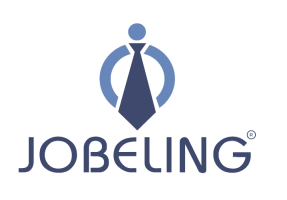
Breaking into the music industry as a lead vocalist can be challenging, but with determination, talent, and a well-planned strategy, you can secure your first major gig. Success involves building a strong personal brand, mastering live performances, and using modern talent platforms to connect with industry professionals. This guide outlines the essential steps to help you book your first gig as a lead vocalist, from crafting a standout portfolio to preparing for auditions and working with talent agencies like Jobeling.
Contents
Understanding the Role of a Lead Vocalist
A lead vocalist is the face of the band or musical act, responsible for delivering captivating performances while connecting emotionally with the audience.

The role goes beyond singing, involving leadership, stage presence, and artistic collaboration.
Vocal Excellence and Versatility
At the heart of being a successful lead vocalist is exceptional vocal ability. This includes mastering vocal techniques like breath control, pitch accuracy, and tone modulation. Lead vocalists must also have a broad vocal range to perform various genres, from rock and pop to jazz and R&B.
Versatility is key, as vocalists are often required to adapt to different performance styles. For example, performing acoustic sets demands softer vocal dynamics, while energetic stage performances require power and stamina. Consistent vocal training, regular practice, and working with a vocal coach can refine these skills and ensure a strong, adaptable voice.
Stage Presence and Charisma
Stage presence distinguishes professional lead vocalists from average performers. Charisma on stage involves more than singing; it includes engaging the audience through eye contact, expressive movements, and confident body language.
Rehearse stage movements that complement your performance style, whether it’s dynamic energy for upbeat songs or intimate stillness for emotional ballads. A strong stage presence creates memorable performances and fosters a deeper connection with the audience. Charisma and authenticity go hand-in-hand, making each performance unique and unforgettable.
Band Leadership and Collaboration
Lead vocalists are often the creative leaders of their bands. They guide the group’s musical direction, influence song selection, and contribute to the overall artistic identity. This role demands collaboration with fellow musicians, producers, and sound engineers to achieve cohesive performances.
Being open to feedback and maintaining clear communication fosters a productive environment. Successful lead vocalists find a balance between expressing their artistic vision and respecting the input of their bandmates. This ability to lead while collaborating effectively strengthens the band’s dynamic and overall success.
Building a Professional Music Portfolio
An impressive music portfolio serves as a lead vocalist’s professional resume. It highlights your talent, experience, and personal style, helping you secure gigs and build a lasting career.
Create a Strong Demo Reel
A well-crafted demo reel is your most powerful marketing tool. It should showcase your vocal abilities, style versatility, and stage presence. Include recordings of live performances, studio sessions, and cover songs that reflect your artistic identity.
Start with your strongest piece to capture the viewer’s attention within the first 10-15 seconds. If you specialize in multiple genres, feature tracks that highlight your range—from soulful ballads to energetic pop hits. Professional audio and video quality are essential, as industry professionals judge both performance and production value.
Build a Professional Website
A professional website acts as your digital portfolio, making it easy for event organizers, producers, and talent agencies to learn about you. Include key sections such as an “About Me” page, music samples, a gig history, and high-quality promotional photos.
Add a media kit with downloadable content, including your bio, headshots, and setlists. Ensure that your contact information is easy to find, and consider integrating a booking form for direct inquiries. A well-designed website demonstrates professionalism and boosts your credibility in the industry.
Establish an Active Social Media Presence
Social media is a powerful platform for showcasing your talent and engaging with fans. Platforms like Instagram, YouTube, and TikTok allow you to share performance videos, behind-the-scenes content, and music-related updates.
Consistency is crucial—post regularly and maintain a cohesive visual style that reflects your brand. Use music-related hashtags like #LeadVocalist, #LiveMusic, or #SingerOnStage to increase visibility. Engage with your followers by responding to comments, participating in live streams, and collaborating with other musicians to expand your reach.
Preparing for Live Auditions and Gigs
Preparation is key when pursuing your first lead vocalist gig.

Success involves perfecting audition techniques, delivering powerful live performances, and mastering key elements like song selection and stage presence.
Choose the Right Audition Songs
Selecting the right songs for auditions can make or break your performance. Choose tracks that highlight your vocal strengths, emotional range, and versatility. Avoid overdone songs unless you can deliver a unique interpretation that sets you apart.
Prepare a mix of popular hits and lesser-known tracks that align with the band’s style or venue’s theme. Practice each song thoroughly, ensuring smooth transitions between verses, choruses, and any vocal improvisations. Keep an audition-ready playlist with various tempos and moods to showcase your full artistic range.
Master Your Stage Performance
Audition panels and live audiences expect more than vocal ability—they want captivating stage performances. Rehearse in front of a mirror or record yourself to review posture, facial expressions, and body movements.
Practice making eye contact with the imaginary audience to build comfort and authenticity. Learn how to move naturally on stage, whether you’re interacting with a live band or commanding attention during a solo performance. Strong stage presence can leave a lasting impression on casting directors and event organizers.
Rehearse with a Backup Band or Tracks
Rehearsing with a live band simulates the gig environment and improves timing, coordination, and adaptability. If you don’t have access to live musicians, use professionally mixed backing tracks that complement your voice without overpowering it.
During auditions, ensure your tracks are well-balanced and free of any technical glitches. Familiarize yourself with cues, transitions, and dynamic changes in your tracks to avoid performance disruptions. Being well-rehearsed builds confidence and ensures smooth, polished auditions.
Overcoming Common Challenges as a Lead Vocalist
Breaking into the music industry as a lead vocalist comes with its share of challenges. Learning how to navigate these obstacles with resilience and strategic planning ensures long-term success.
Dealing with Stage Fright
Stage fright can affect even the most talented performers. Overcoming it starts with thorough preparation and mental conditioning. Practice regularly in front of friends, family, or smaller audiences to build confidence.
Use relaxation techniques such as deep breathing, meditation, or visualization exercises before stepping on stage. Focus on the positive aspects of performing, such as connecting with the audience and sharing your art. Experience gradually reduces performance anxiety, turning stage fright into stage excitement.
Managing Rejection and Criticism
Rejection is inevitable in the competitive music industry, but it can also be a valuable learning experience. Treat auditions and gigs as opportunities for growth, regardless of the outcome.
Constructive criticism helps identify areas for improvement, from vocal techniques to stage presence. Stay open to feedback from industry professionals, vocal coaches, and peers. Surround yourself with supportive individuals who encourage personal and professional development. Persistence and adaptability often turn early setbacks into long-term success.
Balancing Vocal Health
Maintaining vocal health is essential for long-lasting career success. Consistent vocal training, proper hydration, and rest are key to protecting your voice.
Develop a daily vocal warm-up and cool-down routine to maintain flexibility and reduce strain. Avoid overusing your voice by scheduling breaks between rehearsals and performances. Consult a vocal coach for personalized training and vocal health tips tailored to your specific needs. Protecting your voice ensures that you can deliver exceptional performances without risking long-term damage.
Expanding Career Opportunities as a Lead Vocalist
Success in the music industry isn’t limited to live performances.

Expanding your career options allows you to build multiple income streams while growing as an artist.
Explore Studio Recording and Session Work
Studio recording offers lucrative opportunities for lead vocalists. Many producers, composers, and ad agencies hire vocalists for studio sessions, including commercial jingles, film soundtracks, and video game music.
Create a professional demo reel highlighting studio-quality recordings of various genres. Register on freelance music platforms like SoundBetter or AirGigs, where producers frequently seek session vocalists. Consistently delivering top-notch studio performances can lead to long-term partnerships with industry professionals.
Offer Vocal Coaching and Music Lessons
Experienced lead vocalists can monetize their expertise by offering private vocal coaching or music lessons. Platforms like TakeLessons and LessonFace connect vocalists with students interested in improving their singing skills.
Create a structured teaching curriculum tailored to different skill levels, from beginners to advanced performers. Offering specialized lessons, such as audition preparation or stage performance coaching, further increases your earning potential. Teaching also strengthens your skills while expanding your professional network within the music community.
Perform at Corporate Events and Private Parties
Corporate events, weddings, and private parties provide consistent performance opportunities outside of traditional concert venues. Event organizers often seek professional vocalists to entertain guests with live music performances.
Partner with event planning agencies or list your services on platforms like GigSalad and WeddingWire. Maintain a professional online presence with polished promotional videos and glowing client testimonials. Diversifying your performance venues keeps your career dynamic and financially stable.
FAQs About Landing a Lead Vocalist Gig
How do I create a strong demo reel?
Include high-quality recordings that highlight your vocal range, stage presence, and genre versatility. Feature both live and studio performances.
What platforms help book lead vocalist gigs?
Platforms like Jobeling, SoundBetter, and AirGigs connect vocalists with producers, event organizers, and industry professionals.
Do I need a professional website?
Yes, a professional website serves as your digital resume, making it easier for event organizers and producers to book you.
How do I overcome performance anxiety?
Practice regularly, start with small gigs, and use relaxation techniques like deep breathing and visualization before performances.
Conclusion
Breaking into the music industry as a lead vocalist requires talent, preparation, and strategic self-promotion. Jobeling simplifies the process by connecting emerging artists with premium music gigs worldwide. Join the waitlist today and start your journey toward a successful music career!
